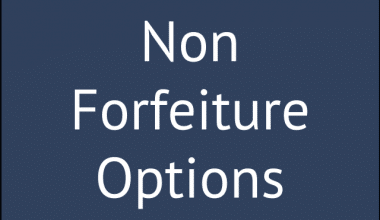Businesses must have a plan in place to protect themselves from the unexpected. Insurance Agency may assist your company or corporation in protecting itself against general liability claims by locating a policy that allows you to manage risk, secure your assets, and meet the expectations of your industry or specific clients. In this post, we’ll look at what General Liability Insurance coverage is, how much it cost, and what the requirements are for small-business insurance for an LLC.
What Is the Definition of General Liability Insurance?
General liability insurance, also known as business liability insurance or commercial general liability insurance coverage, protects your small or large firm from claims made by customers or others as a result of accidents or injuries. Claims of negligence can be costly to cover entirely for businesses, but our general insurance liability policy covers property damage, personal injury, libel, slander, and litigation defense.
Why Do I Need General Liability Insurance Coverage for My Small Business?
As a small business owner, you may be held legally liable if another person is injured or their property is harmed as a result of anything you did. Ascertain that your company is adequately safeguarded against dangers.
Insurance firms provide tailored general liability insurance with a quick and simple quote process. You should think about getting general liability insurance for your small business if you or your employees:
- Interact with clients face to face: When you visit a client’s workplace or clients visit yours, there is always the risk that someone will be injured and require medical attention.
- Allow access to customer property: If a customer’s property is harmed at your location or on a project site, general liability insurance may cover the cost of repairing or replacing it.
- Use advertising to sell your business: If you promote your business and inadvertently utilize copyright or trademarked language, general liability insurance may cover you if a claim is filed.
- Use third-party locations for business-related activities: If someone (other than you or an employee) is hurt on a job site for which you are liable, general liability insurance may pay their medical costs.
- Make coverage a requirement to be considered for a project: If you propose or bid on specific projects, liability insurance may be required as a condition of contract award. Companies will issue you a Certificate of Insurance (COI) to assist you in meeting the requirements.
Who Requires General Liability Insurance Coverage for a Small Business?
Many firms should carry General Liability insurance. Here are a few occupations and their applications for general liability coverage.
#1. Contractors
General liability insurance protects against third-party claims for property damage or bodily harm sustained during building projects or while executing repair or maintenance operations.
#2. Event planners
General liability insurance covers claims arising from accidents or injuries sustained during events. This could include, for example, a guest stumbling over equipment or a vendor’s property being damaged.
#3. Cleaning companies
General liability insurance may cover claims for property damage or injuries sustained while doing cleaning services, such as accidentally breaking a valuable object or a client slipping on the floor.
#4. Photographers and videographers
Claims for injuries caused by negligence are covered by general liability insurance. A general liability insurance coverage, for example, might cover medical expenses if a client or visitor at an event you’re photographing trips over your equipment.
What Does General Liability Insurance Coverage for a Small Business Include?
Small business liability insurance covers a variety of coverage options that you should consider for your risk management strategy. Be aware that state requirements for small business insurance, such as workers’ compensation or commercial auto insurance, differ. A certificate of insurance may be required to demonstrate that your company has the essential coverage.
#1. General Liability Insurance
General liability insurance covers allegations that your company caused bodily harm or property damage to another person. It can also aid in the coverage of tortfeasor claims such as libel and slander. This coverage can assist in the payment of legal bills and disputes that may arise during normal business operations.
#2. Business Auto Insurance
If you drive a company-owned car for business, business auto insurance, also known as commercial auto insurance, protects you and your employees on the road. It can assist cover bodily injury and property damage claims resulting from an accident in which your company is involved.
#3. Professional Liability Insurance
Professional liability insurance protects your company against potential claims arising from errors in the professional services it provides. Errors and omissions insurance is another name for it.
#4. Workers’ Compensation Insurance
Workers’ compensation insurance covers your employees in the event they suffer a work-related accident or illness. It can assist in covering their:
- Medical expenses
- Ongoing care costs
- Disability benefits
- Lost wages
Most states require employers to have workers’ compensation insurance.
#5. Commercial Umbrella Insurance
Some of your liability insurance coverage limitations are increased by commercial umbrella insurance. So, if a costly claim exceeds your policy limit, commercial umbrella coverage might help pay the difference if the source of loss is covered.
General Liability Insurance Coverage For Small Business Cost
Small business owners spend an average of $42 per month or $504 per year for general liability insurance.
The cost of general liability insurance for a small business is determined by several factors, including where you work, what you do, how long you need coverage, and the size of your crew. Policies start at $17 per month, but because every business is different, it’s always a good idea to get a general liability insurance quotation.
Let’s speak about deductibles while we’re looking at the cost of general liability insurance for a small business. When you purchase general liability insurance (by the job, month, or year), the amount you pay is referred to as your ‘premium.’ But do you have to pay anything more when you file a claim? Not quite; the amount you are accountable for if you file a claim is referred to as your ‘deductible.’ Deductibles encourage them to take efforts to avoid a loss by making policyholders contribute to the cost of a claim.
For example, if you choose a $250 deductible on a $1 million limit general liability policy and subsequently make a claim for full limits, you would have only paid your premium and deductible for $1 million in coverage.
On the low end, $17 a month, $42 on average, $1 million or more in coverage, and deductibles as low as $0. You may be seeking cheap general liability insurance, but consider general liability insurance to be an important investment when beginning a new business, much like business cards or a website. Finally, the cost is insignificant in comparison to the value.
Small Business Insurance for LLC
If you own a small business that is organized as a Limited Liability Company (LLC), you should think about getting insurance to safeguard your company from any risks and liabilities. The following are some of the most frequent types of insurance that a small business with an LLC structure may require:
- General Liability Insurance: This insurance protects your company from physical injury, property damage, and advertising injury liability claims. It can pay for legal fees, medical bills, and settlements or judgments against your company.
- Property Insurance: This policy protects your company’s tangible assets, such as its office, equipment, and inventory, from damage or loss caused by fire, theft, or other insured events.
- Professional Liability Insurance: Also known as Errors and Omissions (E&O) insurance, this insurance protects your company from liability claims relating to the professional services you perform. It can cover legal bills, settlements, or judgments against your company, as well as other connected costs.
- Workers’ Compensation Insurance: If you have employees, you may be required by law to carry workers’ compensation insurance to cover medical expenses and lost earnings if an employee is injured or falls ill while working.
- Cyber Liability Insurance: This coverage protects your company from liability claims arising from cyber attacks, data breaches, and other cyber threats. It can be used to cover legal fees, notice charges, and other relevant expenditures.
The insurance needs of your small business may vary depending on your industry, location, and other factors. Also, it is recommended that you speak with an insurance professional to assess your specific needs and obtain appropriate coverage.
Reasons Your LLC Needs Small Business Insurance
To protect your assets, you may have elected to incorporate your small business as a Limited Liability Corporation (LLC). This sort of structure will frequently do so, and it also provides other benefits such as avoiding double taxation of profits, which you would face if your company was a C-corporation.
These are all valid reasons, however, some people believe that if your company is an LLC, you don’t need small business insurance. This is not correct. A simple slip and fall is all it takes to jeopardize your business.
Here are three reasons why your LLC should have small business insurance.
#1. You must safeguard your company’s assets.
In general, joining an LLC prevents your personal assets from being linked to the business’s responsibilities. This means that, in most cases, you will not lose your home if your company is sued. However, there are numerous scenarios in which your company’s assets may be jeopardized.
#2. Your personal assets may still be in jeopardy.
Even if your company is an LLC, you could face personal liability in a variety of situations. A lawsuit against your business could put your personal assets in danger if you do not keep your business and personal assets separate, or if you guarantee a business loan.
#3. You’ll incur costs if you are sued, even if you are found not to be liable
Even if you haven’t made a mistake, you can be sued for nearly anything. A lawsuit means you’ll need a lawyer, may have to miss work to attend mediation or court, and your reputation may suffer as a result.
Small Business Insurance Requirements
Small business insurance requirements vary according to the size of the company, the industry in which it works, and the applicable state and municipal laws. However, the following are some examples of popular types of insurance that may be required for small businesses:
- Workers’ compensation insurance: If you have employees, you may be required by state law to carry workers’ compensation insurance to cover medical bills and missed pay if one of them is hurt or becomes ill while at work.
- Commercial auto insurance: If your company owns or leases vehicles, commercial auto insurance may be required to cover liability claims resulting from accidents or other incidents involving those vehicles.
- Professional liability insurance: Certain businesses, such as healthcare, law, and accountancy, may require professional liability insurance to cover claims involving errors or omissions in professional services.
- General liability insurance: Many firms purchase general liability insurance to protect themselves from liability claims involving physical harm, property damage, and advertising injury.
- Property insurance: If your company owns or leases physical property like an office, warehouse, or retail space, you may be obliged to obtain property insurance to cover damage or loss caused by incidents like fire, theft, or natural disasters.
Again, depending on your sector, location, and other circumstances, the particular insurance requirements for your small business may vary. To establish the insurance requirements that apply to your business, consult with your state and local governments, as well as industry associations and insurance professionals.
How Much Does Liability Insurance Cost?
General liability insurance costs vary, so businesses pay different costs per year for coverage. Typically, businesses pay a few hundred to a couple thousand dollars a year. The average cost is $1,057 annually.
How Much Does Small Business Insurance Cost Per Month?
Small business insurance costs anywhere from about $14 to $124 a month, depending on the coverage types you buy
What Is Umbrella Insurance Used For?
Umbrella insurance is a type of liability insurance that provides additional coverage beyond the limits of a business’s primary liability insurance policies. Also, Umbrella insurance is designed to protect businesses from catastrophic losses that exceed the limits of their primary insurance policies.
Here are some common uses for umbrella insurance:
- Increased Liability Protection
- Protection Against Lawsuits
- Peace of Mind
- Compliance with Contract Requirements
What Is a Business Risk Insurance?
Business risk insurance, also known as commercial risk insurance or enterprise risk insurance, is a type of insurance that provides coverage for a wide range of risks that businesses face. Business risk insurance is designed to protect businesses from unexpected events that could cause financial losses.
What Are the 5 Main Risk Types That Face Businesses?
There are many different types of risks that businesses face, but the following are five of the main types:
- Strategic Risks
- Financial Risks
- Operational Risks
- Compliance Risks
- Reputational Risks
What Are the 3 Types of Risk in Insurance?
In insurance, three main types of risk are commonly discussed:
- Physical Risk: This type of risk involves the potential for physical damage or loss to a person, property, or asset.
- Moral Risk: This type of risk involves the potential for losses caused by dishonest or unethical behavior.
- Morale Risk: This type of risk involves losses that are caused by a decrease in morale or motivation.
What Is Per Occurrence Aggregate?
“Per occurrence aggregate” is a term used in insurance policies to describe the maximum amount of coverage that is available for a single incident or claim. This type of coverage is typically found in liability insurance policies, such as general liability or professional liability insurance.
How Much Is Public Liability Insurance for Sole Trader Ireland?
The cost of public liability insurance for a sole trader in Ireland can vary depending on several factors, including the type of business, the level of coverage needed, the location of the business, and the business’s claims history.
As a rough estimate, public liability insurance for a sole trader in Ireland typically ranges from €200 to €700 per year, but the cost can be higher or lower depending on the factors mentioned above.
What Is General Liability Insurance in California?
General liability insurance in California is a type of insurance that provides coverage for a variety of liability claims that a business may face. This type of insurance is designed to protect businesses from financial losses resulting from lawsuits or claims filed by third parties, such as customers, vendors, or other individuals.
How Does Insurance Work?
Insurance works by transferring the risk of a potential loss from an individual or business to an insurance company in exchange for payment of a premium. Here are the basic steps of how insurance works:
- Risk Assessment
- Premium Payment
- Policy Issuance
- Loss Occurrence
- Claim Processing
- Risk Management
What Is Owner’s General Liability Insurance?
Owner’s general liability insurance is a type of insurance coverage that protects business owners from financial losses resulting from claims of injury or property damage by third parties. This type of insurance is designed to provide coverage for claims that may arise as a result of business operations or activities.
Why Is It Important to Have Insurance?
It is important to have insurance because it provides financial protection against unexpected events or losses. Here are some reasons why having insurance is important:
- Protection against Financial Loss
- Compliance with Legal Requirements
- Peace of Mind
- Access to Health Care
- Protection of Assets
Overall, having insurance is important because it provides financial protection and peace of mind in the event of unexpected events or losses.
Conclusion
Finally, liability insurance is a necessary sort of insurance for small enterprises to safeguard against financial losses caused by litigation or accusations of negligence. Small businesses face a multitude of hazards, including bodily harm, property damage, and advertising injury, which liability insurance can cover.
General liability insurance is a type of liability insurance that covers a wide range of risks such as slip-and-fall incidents, product liability claims, and advertising damage claims. Another sort of liability insurance is professional liability insurance, which is designed to cover claims relating to professional services supplied by firms, such as errors, omissions, or carelessness.
Small businesses should carefully assess their liability insurance requirements and consult with an insurance agent to determine the best coverage for their needs. Also, small businesses can protect their assets and financial stability in the event of unforeseen events or losses by having the proper liability insurance coverage in place.
- LIABILITY INSURANCE ONLINE: Facts You Need to Know
- INSURANCE FOR LLC: Top 2023 Best Options for Coverage
- AVERAGE COST FOR BUSINESS INSURANCE IN 2023
- ASSETS VS LIABILITIES: Definition, Examples, and Differences
- COMPANY LIABILITY INSURANCE: What Is It & How It Works
- CRM FOR SALES: Best Software For 2023
- REVENUE INTELLIGENCE: What It Is & How to Use It






